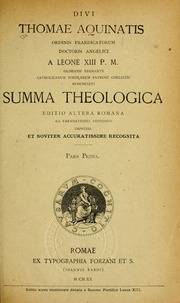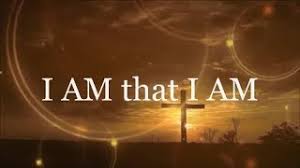Essel- How the Cabalists Stole God
March 25, 2019

"The study of [true] philosophy consists in knowing not what men have thought, but WHAT IS really. " (S. Thomas Aquinas).
Not believing in God = not believing you have a soul.
The crisis facing mankind boils down to a disagreement over the nature of
reality. The Cabalists have imprisoned us with their assumption that reality is based on thought,
which they control and use to replace God. This explains the emphasis on imbibing thoughts of "great men" etc.
According to religion, reality precedes thought and consists of Being, (which witnesses thought.)
Being (God, Consciousness) is a moral dimension where spiritual ideals like Truth, Beauty, Goodness & Love are Self-evident, as when light streams into a darkened room.
Mankind can save itself only by embracing God Consciousness. Below, Essel traces how philosophy was subverted by Cabalists (Freemasonry, Organized Jewry.)
"Essel", 72, taught mathematics in higher education in France for 40 years. He studied Aristotelian-Thomistic philosophy as a hobby. He is a "traditionalist" sedevacantist Catholic.
by Essel
(henrymakow.com)
After taking control of most of the dominant European intellectuals towards the end of the Middle Ages and soaking them in Cabala (the famous "humanists"), the thieves placed the "philosophers" (understand: the sophists) such as Kant (Who has the honor of being on a communist East German stamp-below) in the 18th century in the spotlight. They then sang in all tones that reality, was unknowable, that man, imprisoned in his own thought, could not reach it.

Which of course is false, offends common sense. If we could not understand reality in any way, we men, unlike beasts, would not be able to live, that is clear. However, if intelligence (from the Latin intus Legere = to read into the real) human is made to grasp reality as the view grasp color, etc., it is only partially and imperfectly.
From then on, God, the true God became a simple idea, each one his own, and which does not oblige in any way. Under these conditions, the Decalogue, the other divine Commandments and even God Himself were mere options... That's of course what we were getting at!
The men would be able to dance in circles as they pleased, get married again, etc. The "wicked God" who prevented them from doing so had faded away! Demonstration Be careful!
By "being", we mean something that exists outside of thinking. It can be a living being or not (Peter, a stone, the Sun, etc.) We know with certainty that such a real being exists as a result of observation (I see this man, I can touch him, etc., so I know that he exists outside my mind: he is a real being. Or a deduction following the observation of the existence of a real being: I notice that smoke - being real - rises behind the hill, therefore (deduction) that there is a fire - being real - that produces it (although I do not see it); I see these traces in the snow, which are those of a cat, so I deduce that there is a cat that has passed through there...
Let us consider any of the real beings that surround us: this stone, the sun, this woman, etc. Is he "master of his being"? Of its nature, of what it is (a stone and not a rabbit), and of the simple fact that it exists? Can this stone, for example, suddenly begin to cease to exist and then exist again or become an elephant (i. e. change its nature, which would amount to changing its being)?

No, of course not! these beings who surround us, including us, are dependent on the being. These beings do not exist by themselves because they do not have the "keys" to their existence, to their being. Yet, these beings are real beings who do exist, we can see that. It is THEREFORE that they hold their being, their nature (that they are), and their existence (the simple fact that they are something and not nothing) of another being, which is "master of being", which exists by itself, which is uncaused, does not need another being to exist, whose nature, is the very being (which coincides with the Bible : "I am the One who is" Exodus III, 14), who is able to make this stone exist as a stone or the moon as such.
There is, therefore, an existing being by itself that is the cause of the existence of the "ordinary" beings that surround us. First point. This being master of all existence (including therefore of all kinds), necessarily possesses all perfections to an infinite degree: He creates them" at will! Moreover, it is unique because if there were two distinct ones, one should differ from the other by some perfection that the other would not have, which would be contradictory because according to the hypothesis, they are supposed to possess both of them. Hence the final conclusion: There is one and only one real being which is the cause of the existence of ordinary real beings (who do not exist by themselves).
We call him God. He has all the perfections. God, not being accessible to the senses (sight, touch, etc.) is an immaterial ("spiritual") being. Materialism, which is a philosophical doctrine postulating that only "matter" (in an unspecified sense) exists, is therefore false and consequently communism, which assumes it, a fraud).
An important consequence Real beings are divided into two separate classes: on the one hand, God, existing by himself, and on the other hand, all other beings, who do not exist by themselves. God cannot not exist (otherwise nothing would exist, which is not the case). Such a being is said to be "necessary". God is, therefore, the only necessary being. The other real beings, which we had temporarily called "ordinary" and which are not necessary are called "contingents". Pantheism (a word of Greek origin meaning "all is God") which confuses the contingent and the necessary into a single being called "God" or "Nature" (divinized) is, therefore, an absurd doctrine. The "Cabal", which assumes it, is therefore an imposture.
All environmental movements are underpinned by pantheism.
Remarks 1. - The above demonstration is due in its principle (I have adapted it) to Saint Thomas Aquinas (13th century). From the fifth century, BC Aristotle had given another one.
2. - Philosophy cannot go beyond the existence, uniqueness and first attributes of God. To know more, it is necessary to call upon Revelation (Bible and Oral Tradition), but we enter theology, which deals with the supernatural order (= above the simply created nature).
3. - God can « communicate » with men and allows those who deserve it to participate in divine life after their death. This makes some enthusiasts metaphorically say that they possess in themselves « a spark of divinity », in other words, of God Himself. But this way of expressing oneself, initiated without their knowledge by the Gnostics, is absolutely forbidden. Indeed, as we have demonstrated, the distinction between the divine Being and the contingent beings that we are is unbreakable. To claim that man has a part of God in him is radically false (pantheism). N. B. In English, we recommend the study of Paul J. Glenn's An introduction to philosophy.
Ah, I forgot, since God actually exists, wouldn't it be prudent to take it into account?







Tiny B said (March 25, 2019):
his man's explanation makes me realize even more that all proper mental progress begins with a basic understanding of First Cause. Without such a beginning to our thoughts we are simply mentally flailing about, unable to come to any true conclusions about anything. Truly, without considering, without at least limited understanding of, the omnipotence and omniscience of God, all we think or do has no real aim, not even a stable direction.